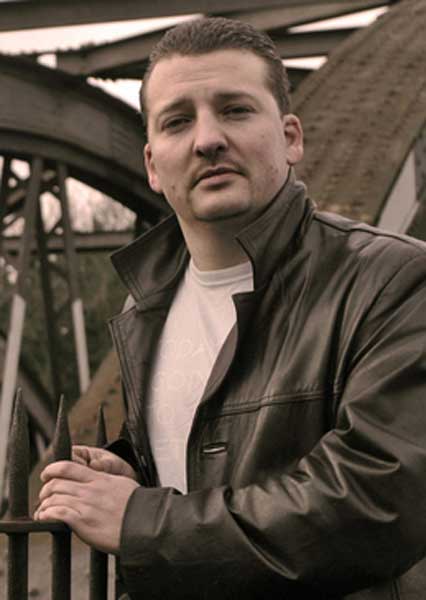The Diary: Booker Prize; Nick Taussig; Venice Film Festival; SpeedArting; Isaac Julien

Your support helps us to tell the story
From reproductive rights to climate change to Big Tech, The Independent is on the ground when the story is developing. Whether it's investigating the financials of Elon Musk's pro-Trump PAC or producing our latest documentary, 'The A Word', which shines a light on the American women fighting for reproductive rights, we know how important it is to parse out the facts from the messaging.
At such a critical moment in US history, we need reporters on the ground. Your donation allows us to keep sending journalists to speak to both sides of the story.
The Independent is trusted by Americans across the entire political spectrum. And unlike many other quality news outlets, we choose not to lock Americans out of our reporting and analysis with paywalls. We believe quality journalism should be available to everyone, paid for by those who can afford it.
Your support makes all the difference.A cover operation
If the general public imagined, as I naively did, that Booker Prize judges came steaming out of a room this week to reveal their shortlist (whittled down from a longlist of 13, above centre), you'd be wrong. On Tuesday, the poet and chair of this year's judges, Andrew Motion, revealed the titles to the press and the rest of the world. It had taken them two and a half hours of debate, we were told. As it turns out, it was two and a half hours, a week ago. Andrea Levy, shortlisted author of The Long Song, told me she had received a phone-call five days ago ("while I was moving home") to tell her she'd made it. A former Booker judge later told me it hadn't been like that in his day, when there was a "more or less immediate release of the shortlist after the judges had met." When organisers were quizzed about the time lag – and the very possible risk of one of the shortlistees inadvertently blurting out the secret – they said the change had been implemented three years ago, for practical reasons: so that booksellers such as Amazon and Waterstones can re-print the selected books with the "Booker short-listed" tag on it.
Spy games
Nick Taussig, the deputy managing director of Revolver Entertainment, who has just finished writing his fourth novel, The Distinguished Assassin, told me he was mistaken for a British spy on a research trip to Russia: "I travelled throughout the country in 2008, making it as far as Magadan, the Russian Far East, the gateway to Gulag hell. It became clear that though the Soviet Union is no more, the place is still very much an "Imperium"... This became all too clear when I was grabbed by two FSB operatives in Moscow while taking pictures of the Lubyanka. I wanted photographic references for when I returned to London and began writing, but they were sure that I was a British spy."
The agents held him outside the building while a third man confiscated his passport. They released him after 40 minutes with some expletives – "spoken in perfect English" – to send him on his way. He appears to have got his own back: "The incident set the tone for the novel," he says.
Who's Johnny?
Press conferences at the Venice Film Festival have led to a few flashpoints between the stars and the media. Julian Schnabel (above right), the director of Miral, had an exasperated moment when confronted by a voluble Italian journalist who stood up to ask a question, but after a few minutes of rambling still had not asked it. Schnabel asked whether he could possibly stop shouting into the microphone. The man carried on, undeterred. Elsewhere, another journalist got his own back on the lead actor of Sofia Coppola's latest film, Somewhere. Stephen Dorff's character, Johnny Marco, is shown at a press conference, being asked a series of moronic questions by real-life members of the press, including one – "Who is Johnny" – which leaves him stumped. The first question to Coppola and Dorff at the press conference in Venice was the gloriously ironic: "Who is Stephen Dorff?"
Loving speed
The closer ties between artists and buyers that began with the YBA movement of the 1990s has turned into a love-in. The new trend, SpeedArting, launching next week, is being described as speed-dating between artists and buyers, bringing together promising artists and potential buyers "in an informal setting".
It's aimed at those who would not describe themselves as typical art buyers, and who might find buying through galleries intimidating. Jody Kingzett, its founder, says: "All we do is hook up the numerous talented artists out there with the people who want original and affordable art." People attending can apparently "mingle about drink in hand, chat with the artists, view the work". Sounds romantic.
Added dimension
The avant-garde artist Isaac Julien is to bring out his first 3D film. The Turner-nominated artist, whose latest 50-minute film installation Better Life, partly based on the 2004 tragedy of the Chinese cockle pickers at Morecambe Bay, and starring Maggie Cheung, is to be shown as a multi-screened installation at London's Hayward Gallery in October. I hope this new 3D project will be as visually spectacular as his latest film.
Join our commenting forum
Join thought-provoking conversations, follow other Independent readers and see their replies
Comments